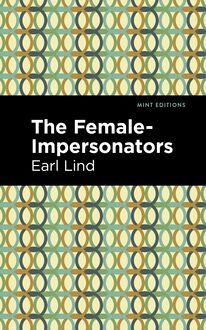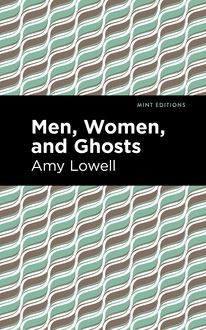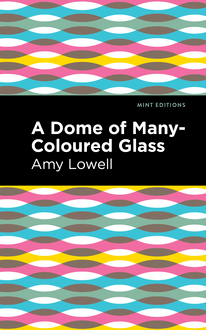-
 Univers
Univers
-
 Ebooks
Ebooks
-
 Livres audio
Livres audio
-
 Presse
Presse
-
 Podcasts
Podcasts
-
 BD
BD
-
 Documents
Documents
-
- Cours
- Révisions
- Ressources pédagogiques
- Sciences de l’éducation
- Manuels scolaires
- Langues
- Travaux de classe
- Annales de BEP
- Etudes supérieures
- Maternelle et primaire
- Fiches de lecture
- Orientation scolaire
- Méthodologie
- Corrigés de devoir
- Annales d’examens et concours
- Annales du bac
- Annales du brevet
- Rapports de stage
La lecture à portée de main

Vous pourrez modifier la taille du texte de cet ouvrage
Découvre YouScribe en t'inscrivant gratuitement
Je m'inscrisDécouvre YouScribe en t'inscrivant gratuitement
Je m'inscrisEn savoir plus
Vous pourrez modifier la taille du texte de cet ouvrage
En savoir plus

Description
Bertram Cope’s Year (1919) is a novel by Henry Blake Fuller. Having established himself as a leading figure in Chicago’s burgeoning literary scene, Fuller—a pioneer of American realist fiction—produced this late masterpiece, often considered one the nation’s earliest homosexual novels. Both profound and funny, Bertram Cope’s Year is a classic campus story that critiques the social lives of academics while emphasizing the struggles of its intelligent young hero. “Of course, there is no more reason for assuming that every man will make a good lover than that every woman will make a good mother or a good housekeeper. Or that every adult male will make a good citizen....I don't feel that I'm an especially creditable one. So it runs. We ground our general life on theories, and then the facts come up and slap us in the face.” Where theories fail, experience is all that remains. For Bertram Cope, a promising young English instructor, this truth proves both enticing and dangerous—searching for recognition, he suffers from self-doubt; searching for love, he finds romance wherever he turns. As he balances his work alongside affairs with older men and women, as well as some fleeting matches with women his own age, Bertram finds himself longing for his old friend Arthur Lemoyne, perhaps the only person who has always treated him as human. Hilarious and heartfelt, Bertram Cope’s Year is a groundbreaking work of queer literature that continues to entertain and inform over a century after it was published. With a beautifully designed cover and professionally typeset manuscript, this edition of Henry Blake Fuller’s Bertram Cope’s Year is a classic work of queer American literature reimagined for modern readers.
Sujets
Informations
| Publié par | Mint Editions |
| Date de parution | 23 avril 2021 |
| Nombre de lectures | 0 |
| EAN13 | 9781513295459 |
| Langue | English |
| Poids de l'ouvrage | 1 Mo |
Informations légales : prix de location à la page 0,0500€. Cette information est donnée uniquement à titre indicatif conformément à la législation en vigueur.
Extrait
Bertram Cope’s Year
Henry Blake Fuller
Bertram Cope’s Year was first published in 1919.
This edition published by Mint Editions 2021.
ISBN 9781513295305 | E-ISBN 9781513295459
Published by Mint Editions ®
minteditionbooks.com
Publishing Director: Jennifer Newens
Design & Production: Rachel Lopez Metzger
Project Manager: Micaela Clark
Typesetting: Westchester Publishing Services
C ONTENTS I. C OPE AT A C OLLEGE T EA II. C OPE M AKES A S UNDAY A FTERNOON C ALL III. C OPE IS “E NTERTAINED ” IV. C OPE IS C ONSIDERED V. C OPE IS C ONSIDERED F URTHER VI. C OPE D INES — AND T ELLS A BOUT IT VII. C OPE U NDER S CRUTINY VIII. C OPE U NDERTAKES AN E XCURSION IX. C OPE ON THE E DGE OF T HINGS X. C OPE AT HIS H OUSE P ARTY XI. C OPE E NLIVENS THE C OUNTRY XII. C OPE A MIDST C ROSS -P URPOSES XIII. C OPE D INES A GAIN — AND S TAYS A FTER XIV. C OPE M AKES AN E VASION XV. C OPE E NTERTAINS S EVERAL L ADIES XVI. C OPE G OES A-S AILING XVII. C OPE A MONG C ROSS -C URRENTS XVIII. C OPE AT THE C ALL OF D UTY XIX. C OPE F INDS H IMSELF C OMMITTED XX. C OPE HAS A D ISTRESSFUL C HRISTMAS XXI. C OPE , S AFEGUARDED , C ALLS A GAIN XXII. C OPE S HALL B E R ESCUED XXIII. C OPE R EGAINS HIS F REEDOM XXIV. C OPE IN D ANGER A NEW XXV. C OPE IN D OUBLE D ANGER XXVI. C OPE AS A G O -B ETWEEN XXVII. C OPE E SCAPES A S NARE XXVIII. C OPE A BSENT F ROM A W EDDING XXIX. C OPE A GAIN IN THE C OUNTRY XXX. C OPE AS A H ERO XXXI. C OPE G ETS N EW L IGHT ON HIS C HUM XXXII. C OPE T AKES HIS D EGREE XXXIII. C OPE IN A F INAL V IEW
I
C OPE AT A C OLLEGE T EA
What is a man’s best age? Peter Ibbetson, entering dreamland with complete freedom to choose, chose twenty-eight, and kept there. But twenty-eight, for our present purpose, has a drawback: a man of that age, if endowed with ordinary gifts and responsive to ordinary opportunities, is undeniably—a man; whereas what we require here is something just a little short of that. Wanted, in fact, a young male who shall seem fully adult to those who are younger still, and who may even appear the accomplished flower of virility to an idealizing maid or so, yet who shall elicit from the middle-aged the kindly indulgence due a boy. Perhaps you will say that even a man of twenty-eight may seem only a boy to a man of seventy. However, no septuagenarian is to figure in these pages. Our elders will be but in the middle forties and the earlier fifties; and we must find for them an age which may evoke their friendly interest, and yet be likely to call forth, besides that, their sympathy and their longing admiration, and later their tolerance, their patience, and even their forgiveness.
I think, then, that Bertram Cope, when he began to intrigue the little group which dwelt among the quadruple avenues of elms that led to the campus in Churchton, was but about twenty-four,—certainly not a day more than twenty-five. If twenty-eight is the ideal age, the best is all the better for being just a little ahead.
Of course Cope was not an undergraduate—a species upon which many of the Churchtonians languidly refused to bestow their regard. “They come, and they go,” said these prosperous and comfortable burghers; “and, after all, they’re more or less alike, and more or less unrewarding.” Besides, the Bigger Town, with all its rich resources and all its varied opportunities, lay but an hour away. Churchton lived much of its real life beyond its own limits, and the student who came to be entertained socially within them was the exception indeed.
No, Bertram Cope was not an undergraduate. He was an instructor; and he was working along, in a leisurely way, to a degree. He expected to be an M.A., or even a Ph.D. Possibly a Litt.D. might be within the gift of later years. But, anyhow, nothing was finer than “writing”—except lecturing about it.
“Why haven’t we known you before?” Medora T. Phillips asked him at a small reception. Mrs. Phillips spoke out loudly and boldly, and held his hand as long as she liked. No, not as long as she liked, but longer than most women would have felt at liberty to do. And besides speaking loudly and boldly, she looked loudly and boldly; and she employed a determined smile which seemed to say, “I’m old enough to do as I please.” Her brusque informality was expected to carry itself off—and much else besides. “Of course I simply can’t be half so intrepid as I seem!” it said. “Everybody about us understands that, and I must ask your recognition too for an ascertained fact.”
“Known me?” returned Cope, promptly enough. “Why, you haven’t known me because I haven’t been here to be known.” He spoke in a ringing, resonant voice, returning her unabashed pressure with a hearty good will and blazing down upon her through his clear blue eyes with a high degree of self-possession, even of insouciance. And he explained, with a liberal exhibition of perfect teeth, that for the two years following his graduation he had been teaching literature at a small college in Wisconsin and that he had lately come back to Alma Mater for another bout: “I’m after that degree,” he concluded.
“Haven’t been here?” she returned. “But you have been here; you must have been here for years—for four, anyhow. So why haven’t we…?” she began again.
“Here as an undergraduate, yes,” he acknowledged. “Unregarded dust. Dirt beneath your feet. In rainy weather, mud.”
“Mud!” echoed Medora Phillips loudly, with an increased pressure on his long, narrow hand. “Why, Babylon was built of mud—of mud bricks, anyway. And the Hanging Gardens…!” She still clung, looking up his slopes terrace by terrace.
Cope kept his self-possession and smiled brilliantly.
“Gracious!” he said, no less resonant than before. “Am I a landscape garden? Am I a stage-setting? Am I a—?”
Medora Phillips finally dropped his hand. “You’re a wicked, unappreciative boy,” she declared. “I don’t know whether to ask you to my house or not. But you may make yourself useful in this house, at least. Run along over to that corner and see if you can’t get me a cup of tea.”
Cope bowed and smiled and stepped toward the tea-table. His head once turned, the smile took on a wry twist. He was no squire of dames, no frequenter of afternoon receptions. Why the deuce had he come to this one? Why had he yielded so readily to the urgings of the professor of mathematics?—himself urged in turn, perhaps, by a wife for whose little affair one extra man at the opening of the fall season counted, and counted hugely. Why must he now expose himself to the boundless aplomb and momentum of this woman of forty-odd who was finding amusement in treating him as a “college boy”? “Boy” indeed she had actually called him: well, perhaps his present position made all this possible. He was not yet out in the world on his own. In the background of “down state” was a father with a purse in his pocket and a hand to open the purse. Though the purse was small and the hand reluctant, he must partly depend on both for another year. If he were only in business—if he were only a broker or even a salesman—he should not find himself treated with such blunt informality and condescension as a youth. If, within the University itself, he were but a real member of the faculty, with an assured position and an assured salary, he should not have to lie open to the unceremonious hectorings of the socially confident, the “placed.”
He regained his smile on the way across the room, and the young creature behind the samovar, who had had a moment’s fear that she must deal with Severity, found that a beaming Affability—though personally unticketed in her memory—was, after all, her happier allotment. In her reaction she took it all as a personal compliment. She could not know, of course, that it was but a piece of calculated expressiveness, fitted to a ’particular social function and doubly overdone as the wearer’s own reaction from the sprouting indignation of the moment before. She hoped that her hair, under his sweeping advance, was blowing across her forehead as lightly and carelessly as it ought to, and that his taste in marquise rings might be substantially the same as hers. She faced the Quite Unknown, and asked it sweetly, “One lump or two?”
“The dickens! How do I know?” he thought. “An extra one on the saucer, please,” he said aloud, with his natural resonance but slightly hushed. And his blue eyes, clear and rather cold and hard, blazed down, in turn, on her.
“Why, what a nice, friendly fellow!” exclaimed Mrs. Phillips, on receiving her refreshment. “Both kinds of sandwiches,” she continued, peering round her cup. “Were there three?” she asked with sudden shrewdness.
“There were macaroons,” he replied; “and there was some sort of layer-cake. It was too sticky. These are more sensible.”
“Never mind sense. If there is cake, I want it. Tell Amy to put it on a plate.”
“Amy?”
“Yes, Amy. My Amy.”
“Your Amy?”
“Off with you,—parrot! And bring a fork too.”
Cope lapsed back into his frown and recrossed the room. The girl behind the samovar felt that her hair was unbecoming, after all, and that her ring, borrowed for the occasion, was in bad taste. Cope turned back with his plate of cake and his fork. Well, he had been promoted from a “boy” to a “fellow”; but must he continue a kind of methodical dog-trot through a sublimated butler’s pantry?
“That’s right,” declared Mrs. Phillips, on his return, as she looked lingeringly at his shapely thumb above the edge of the plate. “Come, we will sit down together on this sofa, and you shall tell me all about yourself.” She looked admiringly at his blue serge knees as he settled down into place. They were slightly bony, perhaps; “but then,” as she told herself, “he is still quite young. Who would want him anything but slender?—even spare, if need be.”
As they sat there together,—she plying him with questions and he, restored to good humor, replying or parrying with an unembarrassed exuberance,—a man who stood just
Attention
En entrant sur cette page, vous certifiez :
- 1. avoir atteint l'âge légal de majorité de votre pays de résidence.
- 2. avoir pris connaissance du caractère érotique de ce document.
- 3. vous engager à ne pas diffuser le contenu de ce document.
- 4. consulter ce document à titre purement personnel en n'impliquant aucune société ou organisme d'État.
- 5. vous engager à mettre en oeuvre tous les moyens existants à ce jour pour empêcher n'importe quel mineur d'accéder à ce document.
- 6. déclarer n'être choqué(e) par aucun type de sexualité.
YouScribe ne pourra pas être tenu responsable en cas de non-respect des points précédemment énumérés. Bonne lecture !
-
 Univers
Univers
-
 Ebooks
Ebooks
-
 Livres audio
Livres audio
-
 Presse
Presse
-
 Podcasts
Podcasts
-
 BD
BD
-
 Documents
Documents
-
Jeunesse
-
Littérature
-
Ressources professionnelles
-
Santé et bien-être
-
Savoirs
-
Education
-
Loisirs et hobbies
-
Art, musique et cinéma
-
Actualité et débat de société
-
Jeunesse
-
Littérature
-
Ressources professionnelles
-
Santé et bien-être
-
Savoirs
-
Education
-
Loisirs et hobbies
-
Art, musique et cinéma
-
Actualité et débat de société
-
Actualités
-
Lifestyle
-
Presse jeunesse
-
Presse professionnelle
-
Pratique
-
Presse sportive
-
Presse internationale
-
Culture & Médias
-
Action et Aventures
-
Science-fiction et Fantasy
-
Société
-
Jeunesse
-
Littérature
-
Ressources professionnelles
-
Santé et bien-être
-
Savoirs
-
Education
-
Loisirs et hobbies
-
Art, musique et cinéma
-
Actualité et débat de société
- Cours
- Révisions
- Ressources pédagogiques
- Sciences de l’éducation
- Manuels scolaires
- Langues
- Travaux de classe
- Annales de BEP
- Etudes supérieures
- Maternelle et primaire
- Fiches de lecture
- Orientation scolaire
- Méthodologie
- Corrigés de devoir
- Annales d’examens et concours
- Annales du bac
- Annales du brevet
- Rapports de stage











